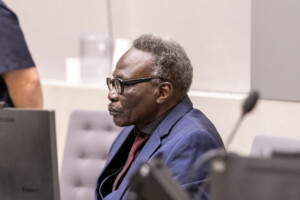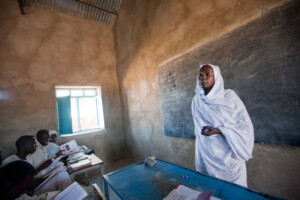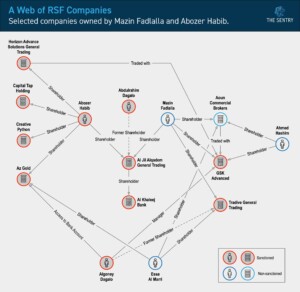UNSC extends mandate of Darfur Panel of Experts
The United Nations Security Council (UNSC) has extended the mandate of the Panel of Experts appointed to monitor the arms embargo, as well as the Sanctions Committee for another year. The resolution also reaffirms the UNSC’s support of Unamid.
The United Nations Security Council (UNSC) has extended the mandate of the Panel of Experts appointed to monitor the arms embargo, as well as the Sanctions Committee for another year. The resolution also reaffirms the UNSC’s support of Unamid.
In resolution 2340 (2017), which was unanimously adopted under Chapter VII of the United Nations Charter on February 8, renewed the Panel’s mandate until March 12 2018.
The Council reaffirms “its commitment to the cause of peace throughout Sudan, to the sovereignty, independence, unity and territorial integrity of Sudan, and to the full and timely implementation of resolution 1591 (2005), recalling the importance of the principles of good neighbourliness, non-interference and cooperation in the relations among States in the region, and further recalling that the Government of Sudan bears the primary responsibility for protecting all populations within its territory, with respect for the rule of law, international human rights law and international humanitarian law, The Council reiterates its support for Unamid, the United Nations Secretary-General, AUHIP, the Joint Special Representative, and the leaders of the region to promote peace and stability in Darfur.”
AUHIP
It welcomes the African Union Peace and Security Council’s decision to extend the AUHIP’s mandate for another year, and further welcomes the AU Roadmap Agreement. The resolution “urges the signatory groups to implement the Roadmap by working toward.” The resolution further urges “all armed groups engaged in conflict in the Jebel Marra area, including the Sudan Liberation Army-Abdulwahid (SLA/AW) to join the AU-led peace negotiations, as a first step towards a comprehensive and sustainable peace agreement…”
In a clear warning to the hold-out rebel movements, the UNSC points out “its willingness to consider targeted sanctions against individuals or entities who impede the peace process, constitute a threat to stability in Darfur and the region, commit violations of international humanitarian or human rights law or other atrocities, or violate the measures implemented by Member States…”
‘Unfettered access’
The UNSC “expresses concern that the Panel of Experts was not able to access Darfur since the adoption of resolution 2265 (2016), underscores the need for the Panel to have full and unfettered access to all of Darfur to fulfil its mandate…”
It further insists that “the Government of Sudan remove all restrictions, limitations, and bureaucratic impediments imposed on the work of the Panel of Experts”.
Jebel Marra
The UNSC notes that “the conflict between the Government and armed groups has mostly become limited to the Jebel Marra region and acknowledging an overall reduction in violence, while remaining particularly concerned at the violence and insecurity that remains, including intercommunal violence, militia activity, banditry, and fighting between the government and armed groups, expressing concern that such violence and insecurity continues to negatively affect civilians and has contributed to an increase in the number of internally displaced persons.
Humanitarian access
It further laments that “the Government of Sudan continues to restrict humanitarian access to conflict areas where vulnerable civilian populations reside, and urges the Government of Sudan to work with international partners to address the urgent humanitarian crisis faced by the people of Darfur, including by improving the facilitation of timely and unhindered humanitarian access to all areas by humanitarian agencies and personnel, consistent with the United Nations guiding principles of humanitarian assistance, including humanity, impartiality, neutrality and independence, and the relevant provisions of international law.”
The UNSC has requested that the Panel provide a first report on its activities no later than 12 August 2017, and a final report to the Council no later than 12 January 2018 with its findings and recommendations.











 and then
and then